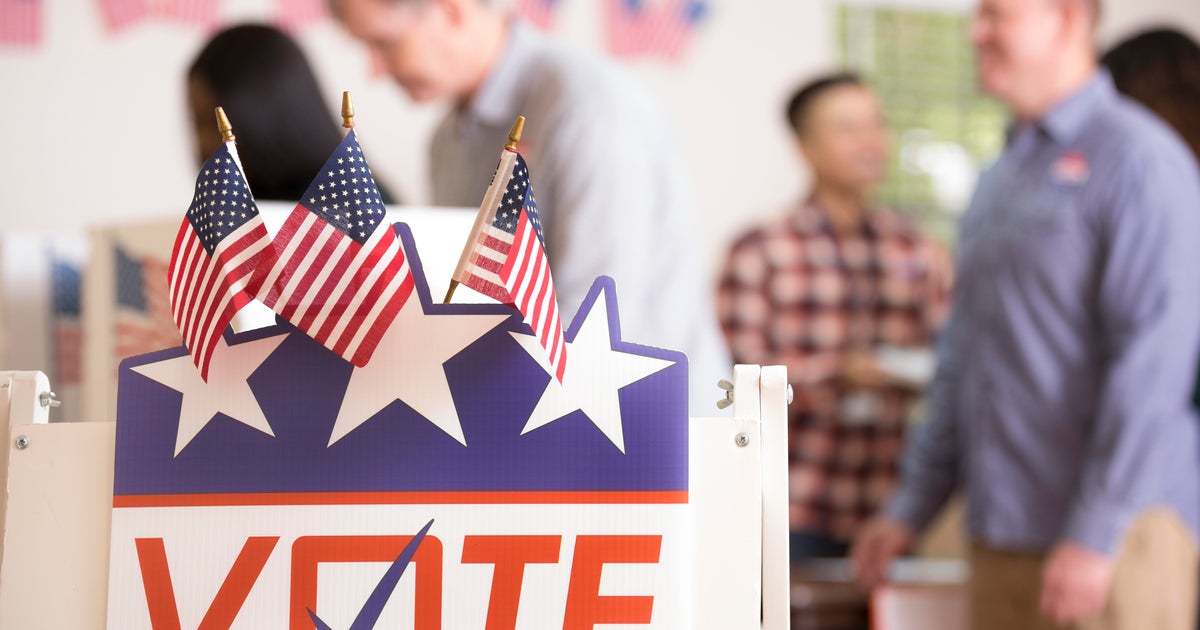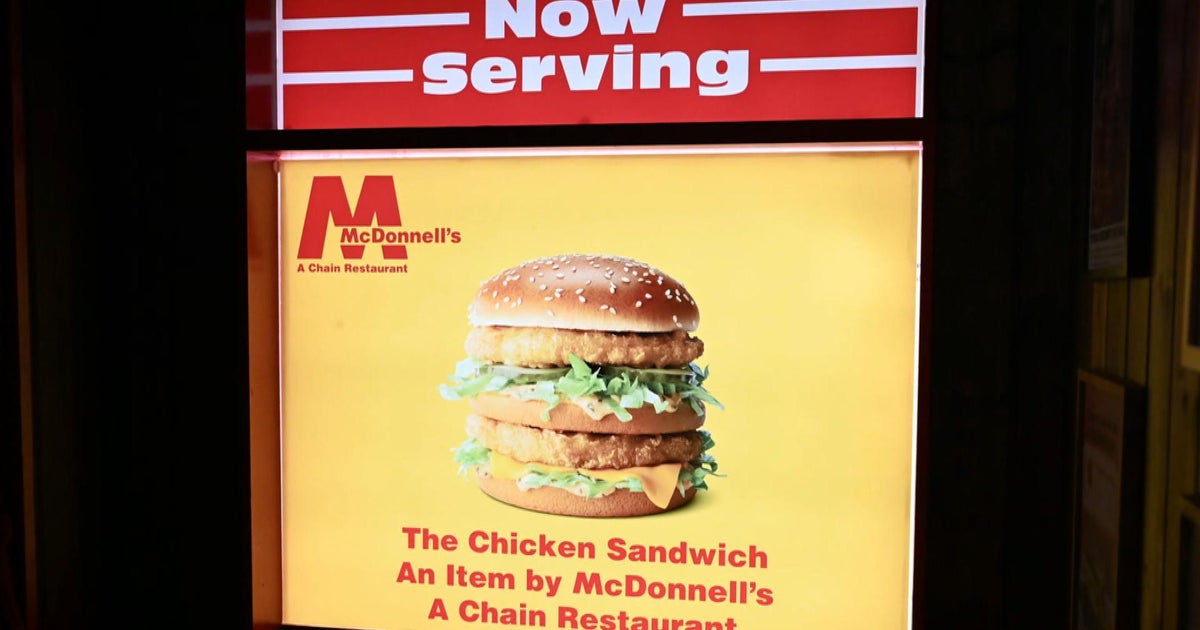CBS News
6 credit card debt forgiveness risks to know

Getty Images
In today’s economy, many people find themselves struggling with expensive credit card debt. With credit card interest rates averaging about 23% currently, any credit card balance you carry can quickly balloon out of control, leaving you looking for solutions to alleviate the burden that comes with rapidly compounding credit card debt. While there are numerous solutions to consider, credit card debt forgiveness, also known as debt settlement, is one option that can seem particularly appealing.
When you pursue debt forgiveness, the goal is to reduce the total amount you owe on your credit cards by negotiating with your creditors, allowing you to pay off your balances for less than the original amount. In some cases, this type of debt relief could even cut your balances by 30% to 50% or more, providing major relief from your high-rate credit card debt.
The promise of settling a large amount of debt for pennies on the dollar can seem like the perfect solution, and it certainly can be, especially if you’re on the brink of bankruptcy. However, these programs are not always as simple as they may appear, and the process of negotiating debt forgiveness can be fraught with complications. So before pursuing this option, it’s crucial to understand what the potential risks are.
Explore your credit card debt forgiveness options today.
6 risks of pursuing credit card debt forgiveness
The risks that can come with debt forgiveness include the following:
It may not result in owing less
One of the biggest risks of pursuing credit card debt forgiveness is that there is no guarantee that your creditors will agree to settle for less than the full amount owed. Creditors are under no obligation to negotiate or forgive any portion of your debt. If they reject the settlement offer, you may still owe the full balance, plus any late fees and interest that have accumulated during the negotiation process.
Start tackling your expensive card debt now.
It could cause long-term damage to your credit
Debt forgiveness programs almost always come with a significant impact on your credit score. When you stop making payments to your creditors while the settlement process is ongoing, your accounts will become delinquent, which will be reported to credit bureaus. Delinquent accounts and settled accounts (where the creditor agreed to accept less than the full amount) can stay on your credit report for up to seven years. This will significantly lower your credit score, making it difficult to qualify for loans, credit cards or even housing, until your score improves.
The interest and fees could accumulate
During the debt settlement process, you will typically be advised to stop making payments to your creditors, which can lead to the accumulation of fees, penalties and interest. That means your unpaid balance can grow substantially due to late fees and high interest rates before the settlement negotiations even begin. If a settlement is not reached, you could end up owing far more than you initially did due to these charges, which can create an even more overwhelming financial situation than you started with.
It could result in legal action
Another risk of pursuing credit card debt forgiveness is the potential for legal action. If your creditors are unable to forgive a portion of your debt or are unwilling to negotiate, they may decide to sue you for the unpaid balance. A court judgment in favor of your creditors could lead to wage garnishment, bank account levies or liens on your property. Legal proceedings can also increase the overall cost of your debt and further harm your financial standing.
There could be tax consequences
Many people are unaware that forgiven debt is often considered taxable income by the IRS. If a creditor forgives $600 or more of your debt, they are required to report this amount to the IRS and you will likely receive a 1099-C tax form. This means that you may have to pay taxes on the forgiven amount, which can create an unexpected financial burden. While some may qualify for insolvency exemptions, that’s not always the case.
There may be other costs, too
Debt relief companies charge fees for their services, which can vary, but will typically range between 15% to 25% of the total enrolled debt. These fees may be worth it depending on the outcome of the negotiations, but can still eat into any savings you might achieve through the forgiveness process.
The bottom line
While credit card debt forgiveness might seem like an attractive option for those overwhelmed by debt, it is important to weigh the risks carefully. There is no guarantee of success, and the long-term consequences — ranging from damage to your credit score to potential legal action — can be severe. So while you may find that debt forgiveness makes the most sense for your situation, you should still consider all of your debt relief options before making a decision. Being informed and cautious can help you avoid unintended financial pitfalls.
CBS News
Your friend loves a candidate you hate. Can your relationship survive?

With Election Day around the corner, political divides grow deeper and relationships with certain friends and family members may feel increasingly strained. It leaves some wondering whether to sever ties over fundamental differences in political views.
While it’s been debated for a few elections cycles, experts say the question weighs even more heavily this year.
Dr. Judy Ho, a clinical and forensic neuropsychologist and author of “The New Rules of Attachment,” has seen this dilemma ramp up recently in both her personal and professional life.
“If you encounter enough people, there’s going to be somebody who’s not the same as your views, and some people just get so much more fired up about it, and then it becomes extremely personal really quickly,” she told CBS News.
The issue has even made celeb-studded headlines, with social media users dissecting the friendship between Taylor Swift, who made waves by endorsing Kamala Harris, and Brittany Mahomes, who Donald Trump praised last month for “defending” him.
Can you remain friends with people who hold political views antithetical to your own? Experts say there are a few things to consider when it comes to navigating political divides among loved ones.
Why political differences cause problems
“Political divides are really problematic for relationships because they’re often deeply intertwined with people’s identities and core values,” Ho said. “When the beliefs are challenged, then it feels like a much more personal attack, and it triggers a defensive reaction.”
She said some research shows that when people encounter statements that contradict their deeply held beliefs, their brains react similarly to facing a physical threat.
“It puts them into a fight or flight stance, and that makes conversation impossible, because when you’re in fight or flight, you’re not going to have any kind of productive conversation,” she said.
That’s why we tend to see disagreements that lead to unfriending someone occur more often around social views, and less around something like economic policy, said Dr. Laura Vogel, psychologist and director of mental health services at Momentous Institute.
“Particularly around those social views, that’s where it begins to connect to my identity as a person, who I am, what my faith is, those sorts of things,” she said.
How to decide if your friendship has a future
So, how do you know when it’s time to take a step back — or completely away — from a friend or family member over these disagreements?
First, assess the relationship, experts advise.
Think about how much value this person adds to your life, Ho suggests, and also consider the logistics of whether if you’re going to see this person all the time at work or if they’re part of your family.
“Is it going to be really that feasible to just completely cut them off?” Ho said. “If a person is of value to you in some way, is important to you, then it’s important to try to work through the conflict instead of just completely shutting it out or completely never speaking to them about anything related to their beliefs.”
Vogel also suggests slowing down and thinking, “If I unfriend them, what impact will this have on me?”
“When we are flooded with emotion, whether that’s shock or anger or shame, none of us make really good, thoughtful decisions,” she said. “Let that emotion settle and really reflect … and then make a decision. And I can’t tell anybody what that is, everyone’s going to have a different range of what is best for you.”
If you want to move forward with this person in your life, the next step may include having a conversation with them to better understand their views or to set certain boundaries.
“If this is an important relationship, that’s where we want to really slow down and resist that temptation to make a snap decision, an impulsive decision, and then consider whether a conversation is important and necessary — a live conversation, not a Facebook conversation,” Vogel said.
Your decision doesn’t have to be all-or-nothing, “remain close friends” or “completely cut them off,” experts say. Instead, you may decide to mentally or privately take a step back from someone but remain on amicable terms.
“If it’s a person who you share friends with, you can still see each other at parties and big get-togethers, but do you need to be calling them? No, you don’t,” Ho said. “It doesn’t have to be this huge black-and-white approach, because I don’t think that that’s always feasible.”
Social media versus real life
The threshold for “unfriending” someone in real life compared to on social media is typically different, too.
“If you’re feeling a lot of stress and anxiety every time you get on social media, and it’s a handful of people that are creating that and you don’t really have a relationship with them, I think it’s good for us to have boundaries,” Vogel said.
Ho added that “muting” is a great option if you don’t want to see someone’s posts without outright “unfriending” or “unfollowing” them, which they may see.
“I definitely think the bar is lower for online consumption, because we know that just passive consumption of things can really affect your mindset,” Ho said.
On the other hand, real-life friends who you have more meaningful relationships with may be well worth the extra effort it takes to navigate differences.
“Our good friends can challenge us,” Vogel said. “There’s that argument of, ‘You’re in this echo chamber and you’re not talking to people who have different perspectives than you.’ I think good friends who care about us can come to the conversations with curiosity and be able to listen to your perspective, and then you’re curious about how they’ve come to their perspective. But that’s a much more civil conversation, typically, with a good friend where you value each other versus somebody that you really don’t interact with anymore.”
CBS News
McDonald’s introduces the Chicken Big Mac

Watch CBS News
Be the first to know
Get browser notifications for breaking news, live events, and exclusive reporting.
CBS News
Biden urging Congress to return from recess to approve hurricane disaster relief funds

Watch CBS News
Be the first to know
Get browser notifications for breaking news, live events, and exclusive reporting.


